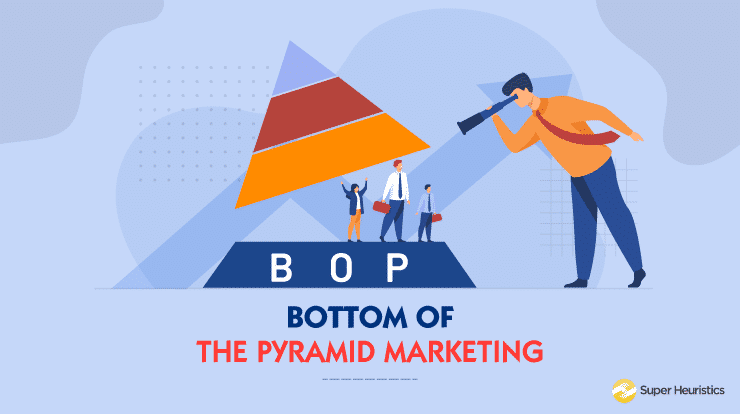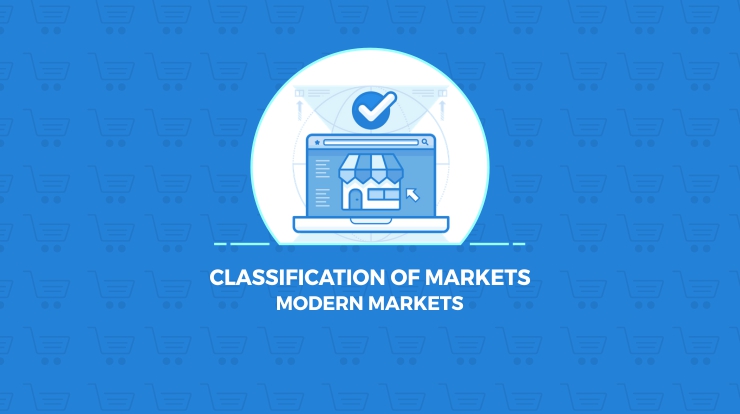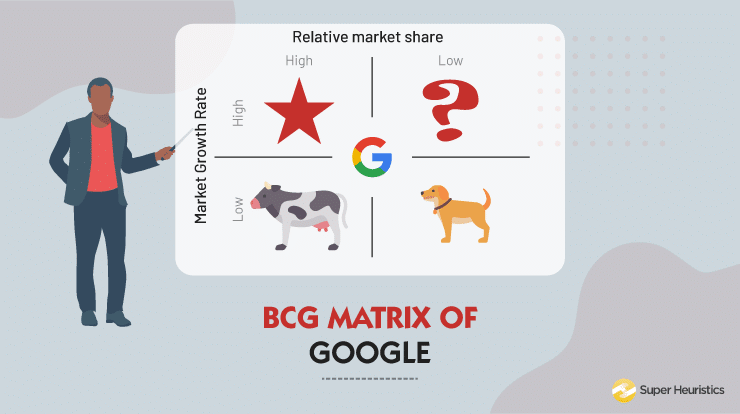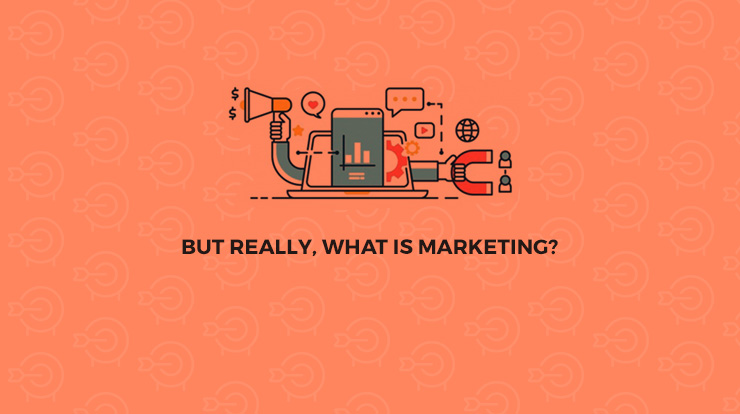
So, what does marketing mean?
You could ask this question to any marketing practitioner or to any CMO, you are likely to never hear the same definition of marketing being repeated twice.
In fact, I couldn’t define marketing for the entire first year of my MBA myself. It was frustrating to not be able to put words to the feelings you can easily feel.
And it’s true, most top marketing people won’t be able to define it as well.
They would pause, halt, search for words, suggest you examples but would rarely be able to define it in a series of words that captures the essence of what does marketing mean.
Chances are less that they would use the same words to describe marketing in each of their subsequent attempts.
Do you realize why is that?
Well, that’s because for years and years together Marketing has only been tacit knowledge. Definition of marketing had only been regarded as nothing more than an academic abstraction. Any attempt to define marketing was nothing more than a conjecture.
In this article, I will take you through step-by-step to make you understand, and feel, what does Marketing mean. I talk about needs, wants, demands, STP and the 4Ps in the first part of this piece.
[cmtoc_table_of_contents]
Step-by-Step Guide on Marketing
Also, if you are not in the mood to read the entire article (which I recommend that you should), you can download this as an infographic instead.
This infographic given below explains what does marketing mean in a way that is easy to understand and retain.
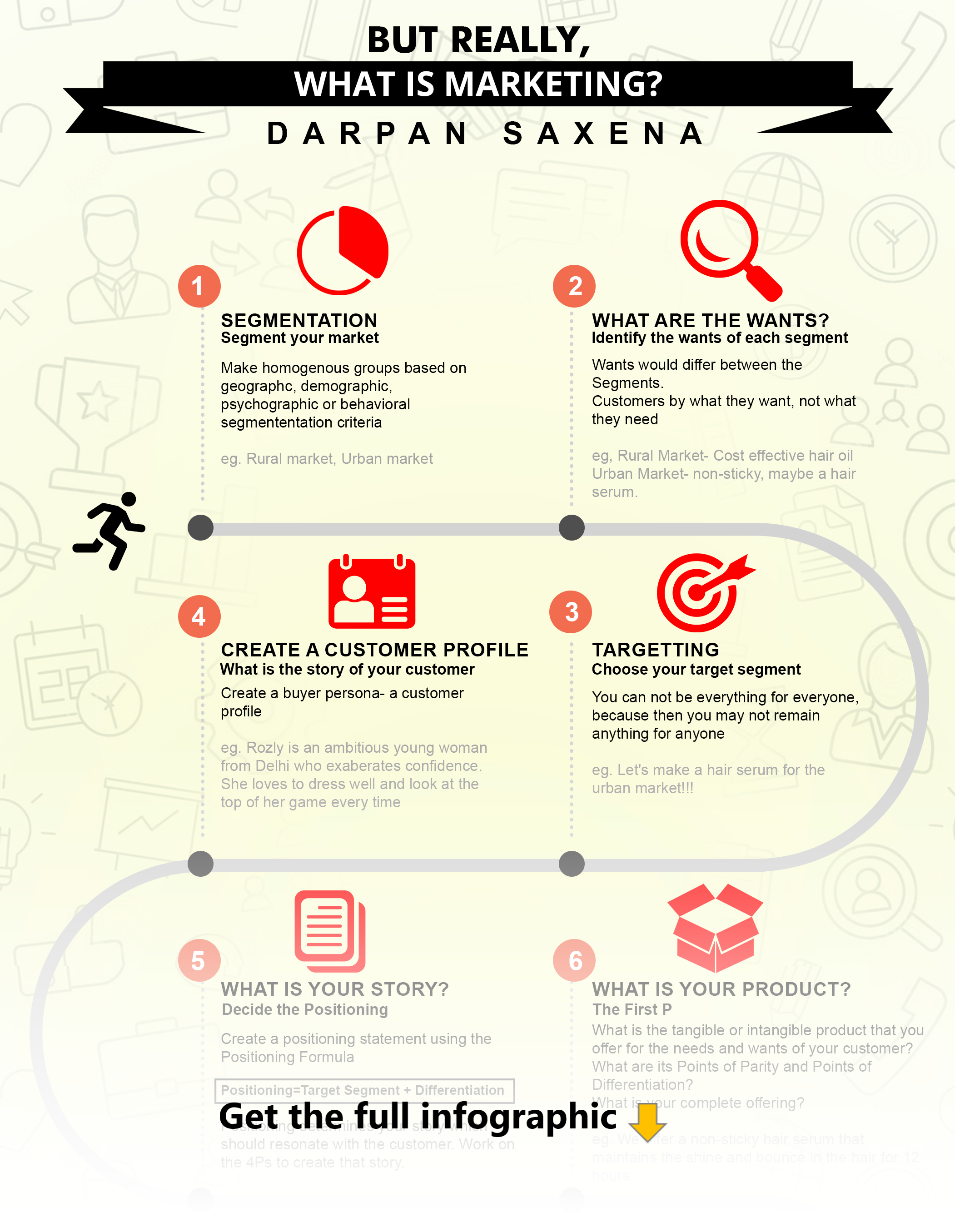
What does Marketing mean?

When you begin to study Marketing at a B-school you realized that the Marketing Management book by Philip Kotler is the book that everyone swears by.
In fact many students, really serious about Marketing, end-up reading that book even before they join their B-schools!
One of the greatest reasons why Philip Kotler and Kevin Lane Keller’s book Marketing Management draws such respect is that it gives definitions and words to many abstractions in Marketing.
The abstractions that up till now did not have any rules to play by. Things that only depended on the golden gut of great marketers.
It was one of those first books for marketing students that made this tacit knowledge into explicit knowledge.
In the book, Kotler and Keller give a suggestive phrase that defines marketing – ‘meeting needs profitably’. This is enough to build upon.
In a more elaborate manner, Kotler and Keller suggest that Marketing is about identifying, anticipating and satisfying customer needs profitably
I have purposely bolded out four words in here. Each of the four words used here has a deep meaning.
Also Read: The Elements of the Marketing mix (4Ps with examples)
In order for you to truly understand the definition of Marketing by Philip Kotler, let us understand each of these four words.
‘Profitably’
 Notice how important it is to do marketing ‘profitably’. Sure, you could sell a lot more of whatever you are selling but what if you are burning a hole in your pocket while doing that?
Notice how important it is to do marketing ‘profitably’. Sure, you could sell a lot more of whatever you are selling but what if you are burning a hole in your pocket while doing that?
Therefore, from the company’s perspective Marketing should be profitable.
At the same time, it would be myopic only look at your profitability. What if the customer buying from you is not profitable because of you?
Therefore, marketing needs to be profitable for all the stakeholders involved.
‘Satisfying’
 ‘Satisfying’ the customer’s needs encompasses everything from creating, communicating and delivering offerings that have some value for the customer.
‘Satisfying’ the customer’s needs encompasses everything from creating, communicating and delivering offerings that have some value for the customer.
There is a certain need that the customer has. And whatever you as a marketer offer to that customer should satisfy that need. As simple as that.
‘Identifying’
 ‘Identifying’ is definitely the bread and butter of a marketer. You as a marketer have to identify what your customers are asking for.
‘Identifying’ is definitely the bread and butter of a marketer. You as a marketer have to identify what your customers are asking for.
This involves the rare skill of hearing the things that your customer never says.
No customer would have ever told in any market research that they want a phone that is really expensive and has a different OS than the Android.
Yet, a marketer identified that need to feel a higher level of social status and people could use a phone to project those feelings. Hence came the iPhone.
‘Anticipating’
 The most charismatic part of this definition is the word ‘anticipating’. And here lies the essence of the question what does Marketing mean. Are you ahead of the curve and can you understand what the customer wants before she knows she wants it?
The most charismatic part of this definition is the word ‘anticipating’. And here lies the essence of the question what does Marketing mean. Are you ahead of the curve and can you understand what the customer wants before she knows she wants it?
Now when I say anticipating, I am not really asking you to become a psychic soothsayer or a fortune teller.
Anticipation, again, involves that art of listening to the things that the consumers don’t say. You can really anticipate much from a market research data.
Heck, most of the people don’t even tell the truth in market research!
But the data could be in the shopping patterns. Or in the web usage patterns. Why?
Because people are not telling you something over there. You are observing them. When they don’t even know you are looking.
This is not about being unethically intrusive. No.
This is about being consistently vigilant. And knowing more about the customer than what they tell you.
Also Read: What does a Digital Marketing Manager do? Basics for MBAs
______________
So, finally, if you wanted an answer to the questions what does marketing mean, then this is your answer to that.
This is what it means.
This definition by Philip Kotler in that great book on Marketing Management captures it beautifully.
And those four words are what you need to remember when someone – in a casual conversation or in an interview – asks you ‘What does Marketing mean?’
In the infographic that I shared above, I have explained the entire process of Marketing. You will be able to understand the entire flow of how does Marketing work and what are the steps required to do Marketing.
However, there is another word in this definition that really sets up the topic of the next part of the conversation that we will have.
And that word is ‘needs’.
Before we get back to discussing the definition of marketing further, here’s what you need to know about needs.
Needs, Wants, and Demands

Here’s some self-loathing by me, if you’re up for it. If not, feel free to skip the next five paragraphs.
I am an awful engineer. And here’s the thing about higher education.
Apart from employment, higher education gives you a sense of fulfillment and positive self-esteem through the knowledge you get about your subjects.
In my case, it only gave me employment and nothing much on the self-esteem front.
I had a need for better self-esteem, status, and recognition. I had to find a way to satisfy this need of mine, which engineering, clearly, couldn’t satisfy.
There were a few options to choose from for pursuing masters. These were the common culprits – M.Tech, MS, and MBA. At that point in time, just after having been brutalized by technology studies, I was clear that I want to do MBA.
I wrote the CAT exam and there was I, shortlisted for the interviews of almost all the top B-schools of India, including the IIMs, XLRI, IIFT, and a few others.
I was keen on getting into one of the top IIMs for some really good reasons that I had. And with those 10,000+ candidates who were shortlisted for the interview,
I knew that the competition for those 3000 odd seats is going to be tough as the demand was high!
If you skipped reading all that self-loathing of mine, you should land up here.
Now, while there is a clear difference between what Needs, Wants and Demands mean, it is common for people to use them interchangeably.
In fact, I used it interchangeably in the first part of this article that you wrote above.
Also Read: Sex in Advertising and why it is time to Shake It Up!
But now once you read below, you will understand the real difference between Needs and Wants. And also about what is Demand.
I have been through texts that often refer to something as a need while, in that context, they actually meant ‘want’.
What are Needs?
So what do they mean?
Needs are some innate basic human requirements that are common across all the individuals. Needs are as basic as air, water, food, shelter, confidence, and self-esteem. They are a part of the fundamental human packaging, we as humans are programmed that way.
Maslow’s Hierarchy of Needs puts together all the needs in the form of a hierarchical pyramid. The bottom-most ones in the pyramid that are the most essential for survival.
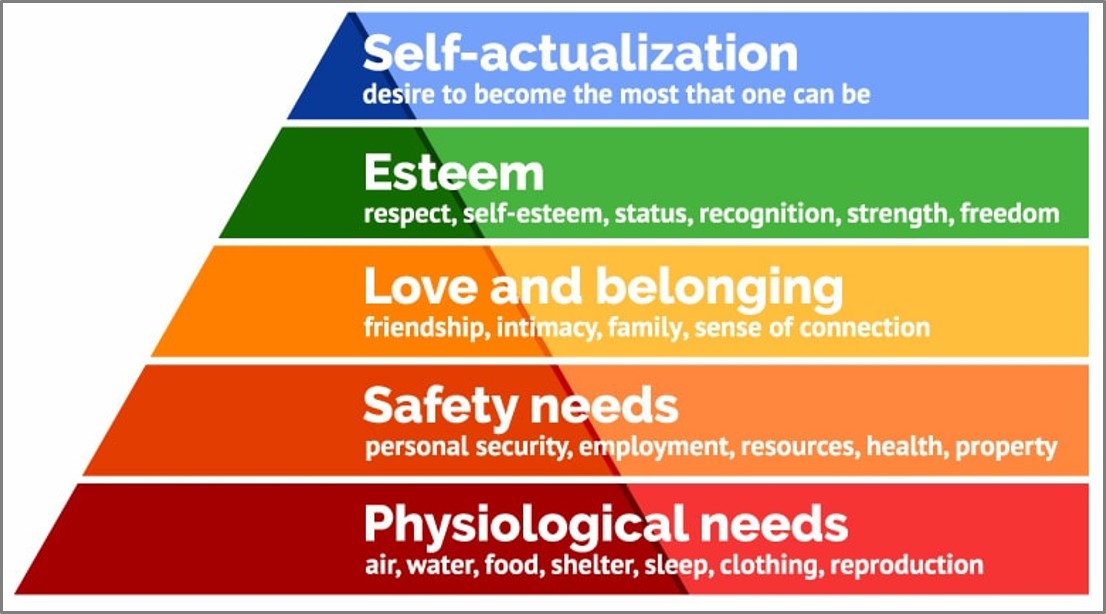
The ones at the tops are more self-fulfilling and you usually have them activated only when some of the basic needs are fulfilled.
What are Wants?
Here is when you will understand the difference between Needs and Wants.
For someone who has a need for traveling from her home to her workplace to earn her bread, buying an expensive car is a want. Out of all the options like scooters, bike, public transport, she feels that a car can satisfy this need the best and that’s why she wants it.
What are Demands?
But the harsh reality of life is, she may want to buy a car but she may not necessarily have the money to by one right now. She has enough to spare for a new good Honda Scooter and therefore, initiates her pursuit to buy a Honda scooter.
So while she wanted a car, she became a part of the demand that there is for a Honda scooter.
And that’s what marketers do right? Assess the demand for their product and determine how much market can they realistically capture, because these are the people who have the pockets to pay for the product.
Remember, demand is always related to a specific product.
If you are one of those who read my apathy at the starting of this section then by now you would clearly be able to tell that what was my need, my want and the demand in that life experience of mine.
While my employment need was satisfied (level – 2 in Maslow’s Hierarchy), my need for esteem (level – 4) was still left unsatisfied.
Frankly, you have got nothing to do with Needs

One of the most complete definitions of marketing that I have come across is what I shared above “identifying, anticipating and satisfying customer needs profitably”.
The way I see it, this definition is true and broad. It takes into account everything that marketing as a function stands for in a company.
But then, what’s in this definition for you as a marketer working in that company?
Do you really go identifying and anticipating the ‘needs’?
If you were to ask me that, I would say no.
Turns out that which needs would you satisfy and cater to is more of a business level strategic decision rather than a decision that is left for the marketer to take.
So, for example, if I know that the people in Delhi have the needs of hunger, travel or the need for the education I might consciously decide to open up a coaching center.
Similarly, if I have an existing business in, say, movie production and distribution, I might make a business level decision of diversifying into the education sector by offering accredited courses in filmmaking.
Sure, you as a marketer in that production house will be the first person your group CEO will reach out to in order to do market research about this. But then what do you think will the objective of that market research be?
Will it be to ‘identify and anticipate the need for education in Delhi’? Or, will it be just to validate the need for ‘movie education in a particular segment in Delhi’?.
Obviously, it will be the latter.
And that’s because all the needs that had to be identified and anticipate are already out there in the Maslow’s hierarchy and it remains a pure business decision to choose which needs are we going to cater to through our operations.
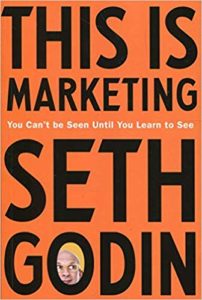 Moreover, the biggest reason why as a marketer have got nothing to do with needs is this. The needs have already been taken care of. Now, what is left is to take care of the wants and if possible, create new wants.
Moreover, the biggest reason why as a marketer have got nothing to do with needs is this. The needs have already been taken care of. Now, what is left is to take care of the wants and if possible, create new wants.
And here’s where I need to tell you about Seth Godin, the ace marketer who propagates this thought of marketing. His books on Marketing are must read. His latest, This is Marketing, spells out everything is a beautiful manner.
This is where I have learned a lot from recently. Do check out the book.
Marketers care about Wants

Marketers profit, marketers prospers because people buy what they want and not what they need.
People across India need healthy hair. For this need, a person in a rural area would want a simple hair oil while a woman in an urban city might want something that’s not as sticky as hair oil. So, therefore, probably a serum
So that’s one need and two different wants.
The fact is marketers can, at best, validate and understand needs. Marketers can’t create needs.
Whereas marketers can create wants. Marketers are not only supposed to identify, anticipate and create wants – it is your job as a marketer to intensify these wants.
This is Segmentation
 Now as you saw, each of the two types of people had two different wants. What you see over here is a possibility of creating two different segments. This is called Segmentation.
Now as you saw, each of the two types of people had two different wants. What you see over here is a possibility of creating two different segments. This is called Segmentation.
A segment is a group of people in your market that are homogeneous in some regard. In this case, you can see that they are similar in terms of the wants that they have. Apart from this, you could segment your audience by geographic, demographics, psychographics and behavior.
This is Targeting
![]() You as a marketer need to decide which of these wants i.e. which of these segments you need to go after. That is what we call Targeting and the segments you go after for your marketing pursuits are called Target Segments.
You as a marketer need to decide which of these wants i.e. which of these segments you need to go after. That is what we call Targeting and the segments you go after for your marketing pursuits are called Target Segments.
‘Wants’ tell you the story of that person that she is telling herself again and again. If your product, your brand tells a story that resonates with the story of that person – you have a customer. And marketing is about creating customers.
This is Positioning
 How do you create a story for your product? This is where Positioning comes into the picture. Positioning is about creating a story which leaves an image on the customer and occupies a certain space in the mind of the customer.
How do you create a story for your product? This is where Positioning comes into the picture. Positioning is about creating a story which leaves an image on the customer and occupies a certain space in the mind of the customer.
Positioning is completely based upon your target segment and also on the differentiation that your product has.
Which means you might position your product differently in one segment than in the other segment by highlighting different aspects of the product.
I have done a detailed post on the Positioning Formula which is the easiest way to understand positioning. I recommend that you must check it out.
Also, here I would highlight that this idea of needs and wants is tricky.
Download: The Basics of Marketing E-Book
Because your faculty or any marketing person you may talk to could be using needs and wants interchangeably in their narrative. But it’s for you to understand what is implied.
Marketing is about creating customers

I have worked with the product and marketing teams of an education company. Our students built up the story for themselves of cracking CAT, the MBA entrance exam, and making it to a top B-school.
All we had to was reinforce their story with the story we had for our product. You can’t lie obviously, that story has to be for real.
How do you ensure that you as a marketer are telling that story effectively?
Here comes in your 4Ps of marketing.
These are the Product, Place, Price, Promotion. This has got to be the most poetic way to define it but here it is.
The 4Ps of marketing are like levers which you maneuver to create a beautiful story that resonates with your target segments.
Conclusion
My aim in this article was to tell you what does marketing mean. Straight, direct and unadulterated. In this post, I covered the definition of Marketing by Philip Kotler.
And you saw how crucial it is for a marketer to understand the concept of needs, wants and demands. In the subsequent post in this series, I have extended this journey further to explain you about how you as a marketer can use the 4Ps to build a story around your product and make sure that the product is successful.
Comment below and let me know if you have any doubts regarding what does Marketing mean.

